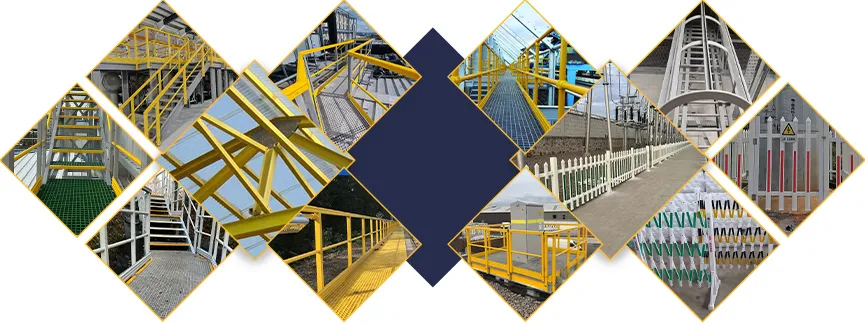loading...
- No. 9, Xingyuan South Street, Dongwaihuan Road, Zaoqiang County, Hengshui, Hebei, China
- admin@zjcomposites.com
- +86 15097380338
- Welcome to visit our website!
Innovative Filtration Solutions with Advanced FRP Filter Vessel Technology for Enhanced Performance and Durability
FRP Filter Vessel A Revolution in Water Treatment
In recent years, the demand for efficient and durable water treatment solutions has surged, driven by the increasing need for clean and safe water globally. One of the most innovative advancements in this arena is the FRP (Fiberglass Reinforced Plastic) filter vessel. This revolutionary technology has transformed traditional filtration systems, offering superior performance and longevity while maintaining cost-effectiveness.
What is an FRP Filter Vessel?
An FRP filter vessel is a container made from fiberglass reinforced plastic, primarily used for water filtration applications. Its composite structure combines the lightweight and corrosive-resistant properties of fiberglass with the robustness of plastic, making it an ideal choice for various water treatment processes. These vessels are commonly used in industries such as municipal water supply, wastewater treatment, and industrial applications, providing a reliable barrier against impurities.
Benefits of FRP Filter Vessels
1. Corrosion Resistance One of the standout features of FRP filter vessels is their exceptional resistance to corrosion. Unlike traditional metal vessels that may degrade over time due to exposure to harsh chemicals and environmental conditions, FRP vessels maintain structural integrity, providing longevity and reducing maintenance costs.
2. Lightweight Design FRP vessels are significantly lighter than their metal counterparts. This characteristic makes installation easier and less labor-intensive, allowing for greater flexibility in design and placement within treatment plants or industrial facilities.
3. High Strength-to-Weight Ratio Despite their lightweight nature, FRP vessels boast a high strength-to-weight ratio. This means they can withstand high pressures and physical stresses, making them suitable for various applications that require robust filtration systems.
frp filter vessel

4. Customizability FRP filter vessels can be tailored to meet specific requirements, including size, shape, and configuration. This versatility allows engineers and designers to create systems that fit unique operational needs, enhancing overall efficiency.
5. Cost-Effectiveness Over time, the durability and low maintenance requirements of FRP vessels lead to reduced operational costs. The initial investment may be slightly higher than traditional vessels, but the long-term savings in maintenance and replacement significantly impact overall expenses.
Applications of FRP Filter Vessels
The versatility of FRP filter vessels extends to numerous applications. In municipal water treatment facilities, they effectively filter out sediment, chlorine, and other contaminants, ensuring safe drinking water for communities. In industrial settings, these vessels help manage wastewater and ensure compliance with environmental regulations.
Additionally, FRP vessels are increasingly being used in smaller-scale systems, such as residential water purification setups, and even in aquaculture for maintaining water quality. Their adaptability to different processes underscores their growing importance in modern water treatment strategies.
Conclusion
As global water challenges intensify, the demand for innovative solutions becomes ever more critical. FRP filter vessels stand at the forefront of this revolution, combining strength, efficiency, and durability to improve water filtration processes. By addressing the limitations of traditional materials, these vessels promise a more sustainable and reliable approach to water treatment, paving the way for a cleaner, healthier future. The continued development and adoption of FRP technology herald a new era in water management, ultimately contributing to the global goal of ensuring access to safe and clean water for all.
-
Premium FRP Handrail for All ApplicationsNewsAug.29,2025
-
Low Maintenance FRP Mini Mesh Grating ProductsNewsAug.29,2025
-
Innovative FRP Square Tubes for Modern Industrial SolutionsNewsAug.29,2025
-
FRP Water Storage Tanks Wholesale Solutions for Bulk BuyersNewsAug.29,2025
-
FRP Molded Grating Solutions for Diverse Industrial ApplicationsNewsAug.29,2025
-
Construction Advancements Through FRP Pultruded ProfilesNewsAug.29,2025
-
Why Choose FRP Railings, Guardrails, and Handrail Systems?NewsAug.29,2025
